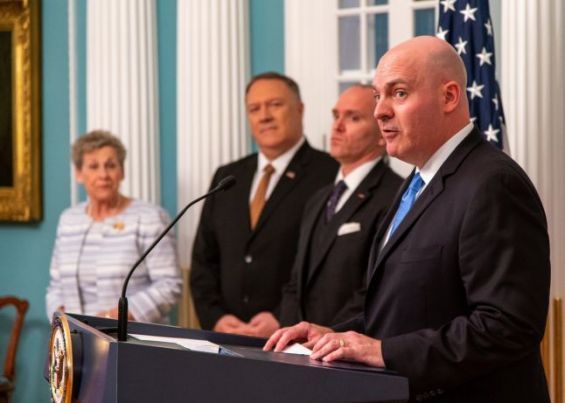Algeria has voiced its concerns about potential shifts in the United States position on Western Sahara. During an official visit conducted by the US Assistant Secretary Bureau of Political-Military Affairs, Algerian officials were all about determining Washington’s new position on the territorial dispute.
Between February 27 and March 4, René Clarke Cooper visited Mauritania, Algeria and Tunisia to «expand the U.S. security cooperation and defense trade» and enhance «shared security across Africa and the Maghreb».
In a special briefing held Friday, March 6, Cooper was asked about the questions he discussed with his counterparts in the Maghreb, especially in Algeria, during his recent visit. «Did the Algerians in your conversations with them express any concerns about the potential shift in the US position on Western Sahara?» asked one of the journalists attending the briefing.
Algeria's concerns
«Yes», answered the US Assistant Secretary Bureau of Political-Military. «I would say every bilateral engagement I’ve had – and I’m including not just ministers; this would be just people – as you all know, in the public sphere that’s a conversation, it’s a very robust discourse on the entire continent about our commitment», revealed Cooper.
«So the conversation came up wherever I – it didn’t matter if I was getting a cup of coffee or if I was in a ministerial. It was something that anybody, regardless if they were an Algerian waiter or an Algerian minister, it was brought up», he added.
Cooper explained that Algeria’s interest in the American position on the issue is normal. «Their concern is if they want to be closer to us, they want to make sure that they see that commitment», he added, referring to Algiers’ «historic relationships with Russia».
«There has certainly been some fanning of the flames (…) there’s been some disruption that is certainly being proliferated by Russian narratives of our commitment to that space», he added.
Cooper’s words about the Western Sahara issue and Algeria’s concerns were, however, overlooked by pro-Polisario news platforms. Some of them, particularly SNN, preferred to distort his comments, claiming that «foreign parties are trying to spread rumors about potential shifts in the US position on Western Sahara», which was not referred to at all during the special briefing held by the US Department of State.
Potential shifts in the US position on the Sahara
Cooper’s visit to Mauritania, Algeria and Tunisia, which excluded Morocco, comes a few months after US State Secretary Mike Pompeo visited Morocco to discuss issues of common interests. During his December 2019 visit to Rabat, Pompeo stressed the «need for a realistic and sustainable political solution» to the Western Sahara conflict. Pompeo was expected to meet King Mohammed VI in Morocco but that did not happen.
Pompeo’s visit was, indeed, preceded by a change in the US position on the territorial conflict. This change was marked by the departure of the United States’ national security advisor John Bolton. President Donald Trump fired the latter in November.
While in office, Bolton showed a strong ambition to end the territorial conflict and was known for being committed to the Polisario’s stance when dealing with the issue. In December 2018, John Bolton told The New Yorker magazine that there are only two Americans who really care about the Western Sahara conflict, citing the name of James Baker, the former personal envoy the Secretary-General of the United Nations in the region (1997-2004) and himself.
Earlier that year, Bolton said that he was «frustrated» that the conflict has not been resolved, adding that «he’d like to see this resolved if the parties can agree on the way forward. That’s the preference».
Beyond Bolton's resignation, Algeria’s concerns might also be linked to the recent reports leaked by Israeli media. Earlier this year, Israeli media claimed that Israel has reportedly been trying to convince the United States of opening a consulate in Western Sahara to help bolster ties between Rabat and Tel Aviv.





 chargement...
chargement...













